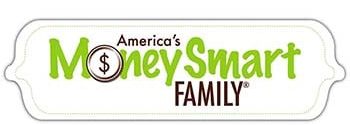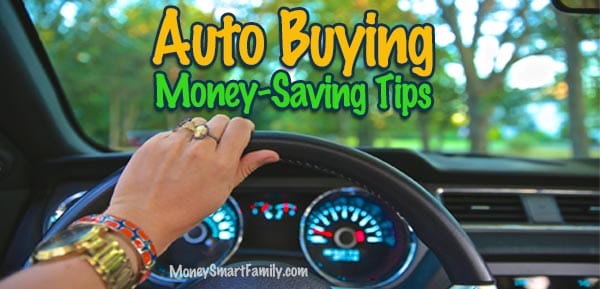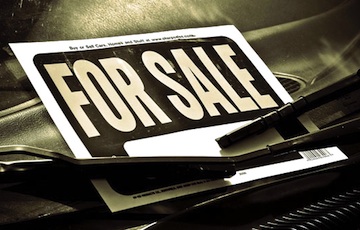This Auto Purchases/ Car Buying Tips Page contains a growing list of money-saving ideas for acquiring a car.
This Car Buying page contains the following money-saving tips:
Pickups aren’t for Kids; Less Car — More Funds and More Fun!; Car Payments No More!; Used Cars: Again and Again
TABLE OF CONTENTS
- 1 Car Buying Tip #1 – Pickups aren’t for Kids
- 2 Car Buying Tip #2 – Used Car? — More Funds & More Fun!
- 3 Car Buying Tip #3 – Car Payments No More!
- 4 Car Buying Tip #4 – Used Cars: Again and Again
- 5 Car Buying Tip #5 – Used Car Buying Check List
- 6 Car Buying Tip #6: Our Car Buying Philosophy
- 7 Here’s how and when we buy used cars
- 8 Buying a Car for My Niece on Payments with Regret
- 9
- 10 Buying a Car with Crushing Debt
- 11 Money Saving Tip: Quote your auto insurance Before You Buy
- 12 Saving with Buying Used Cars
Car Buying Tip #1 – Pickups aren’t for Kids
Between work, errands and family activities I drive about 20,000 per year. Normally, I keep my vehicles for a long time. My first truck was brand new when I purchased at the age of 16 (yes, I paid for it all myself). I kept it 10 years and in 1999 purchased a new extended cab pickup. However, I didn’t factor in the children aspect – I’m married now and we just had a baby. When we travel or run errands, we have to pack up our young son with a car seat and stroller and my 6′ 5” husband into the truck.
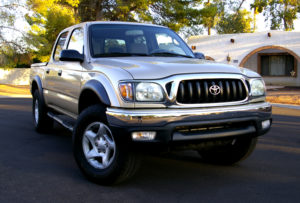
The truck is now so inconvenient that we simply don’t drive over 20 miles anywhere as a family. If we go out, we have to move the stroller from the back of the truck to the cab – we don’t want it to get stolen while we’re in a restaurant or store, etc. It’s really difficult to get our son out of his car seat even with the extended cab. It is a pain! My suggestion to others is this – think ahead more than 2 years, especially if you are the type to buy and keep a vehicle for a while. You may end up buying something a bit larger than what you need now, but you have to ask yourself – “What will my situation be in a few years and will this work for me then? Kristy Mucha – Brownstone, TX
Car Buying Tip #2 – Used Car? — More Funds & More Fun!
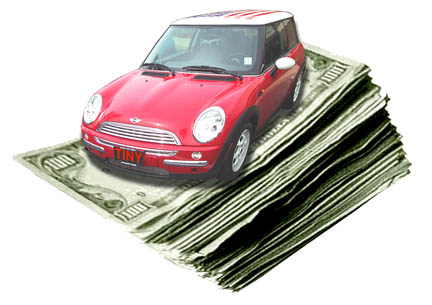
I appreciated your article, “Cars Are Expensive (Duh!)”(subscribers only) it is especially useful. Once when I commented to a fellow salon customer that we have never purchased a car “on time.” She sniffed, “Well, that’s fine if you have that much money.” I answered, “We just never bought that much car.” Jean Fountain – Iowa City, IA
Car Buying Tip #3 – Car Payments No More!
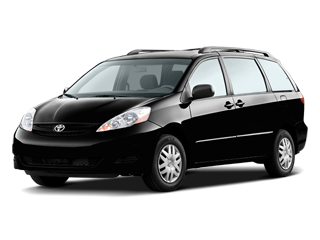
After reading the article “Cars are Expensive,” we decided to get rid of our mini-van and the payments that came with it each month.
We sold the van and used the cash we received to purchase a gently used Honda Accord. For the first time in our married life, we have no car payment! It feels great!
Laura Rognstad – Phoenix, AZ
Car Buying Tip #4 – Used Cars: Again and Again
There are two principles that we’ve always lived by regarding cars.
First, never buy a new car – there are always great deals on used cars around, you just have to look. Second, make them last forever by taking care of them and drive them until they fall apart. Teri Chadwick – Phoenix, AZ
Car Buying Tip #5 – Used Car Buying Check List
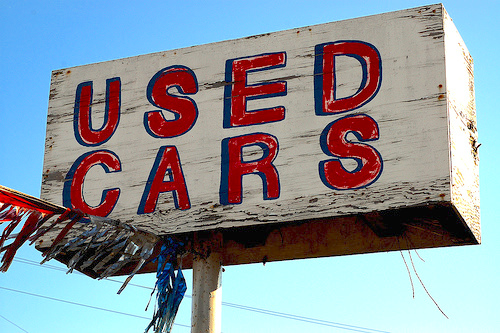
We’ve always bought gently used pre-owned cars (from individual owners, not dealers). One book we read calculated that over a lifetime the difference between buying new cars (with financing) and paying cash for gently used cars can save you over $128,000. We don’t know about saving that much money, but we do know that we’ve never had a car payment, never paid a penny in interest on car loans and always found great deals on used cars.
We’ve created a comprehensive Used Car Checklist article and downloadable .pdf. We’ve used this tool to purchase 10 great used cars for us or our kids.
Other Great Sites
A couple of other great sites we’ve used to search out great used car deals are:
The cool thing about these sites is that you can search by zip code or distance from your home. We found our last vehicle by using Cars.com and searching for vehicles that were less than 300 miles from home. We wound up in Palm Springs, CA buying a full-sized Ford van for $8000 — it only had 20,000 miles on it. It was owned by a small hotel that had used it to transport guests from the airport to the hotel.
We also like these two sites to help us determine the value of the car we are buying (or selling)
Remember to be patient when looking for a great used car deal. Eventually, you’ll find someone desperate to get rid of the exact car you want . . . for a great price.
Steve Economides – Scottsdale, AZ
Car Buying Tip #6: Our Car Buying Philosophy
Dustin from Bellevue, Ohio asked: “I want to purchase a car and am wondering how you go about selecting a car to buy.”
- When you look for a car, how old of a vehicle do you look at?
- What’s the range of miles that the car has on it?
- What Price range do you try to stay within?
- How do you figure your maintenance costs and schedule on your vehicles?
- What kind of cars do you all own, and how old are they?
- When do you decide to get a new car?:
Here’s how and when we buy used cars
Our philosophy on cars is pretty simple.
- We save the money in before we ever think about buying a car.
- Based on what we have saved, research cars in that price range.
- Reference Consumer Reports used car guide (the April issue of each year) to determine better models/years to buy
- Talk to a couple of trusted mechanics about the repair needs of several models we’re interested in.
- Narrow down our search to a couple of specific models/years.
- Have a mechanic troubleshoot any car we’re interested in buying
- Buy the oldest car with the lowest mileage we can find. An older car costs less to insure and less to buy.
We own 20th-century cars, a 1999 Ford Econoline Van (we call it the blue whale) and a 1997 Honda Accord. The van was purchased with 20,000 miles on it in 2005 from a hotel that used it as a shuttle. The Honda was purchased in 2001 with 44,000 miles on it and four of our kids have learned to drive in it.
We are constantly saving for car replacement, but don’t replace a car until our family needs change. The cheapest car to keep is usually the one you know and own.
We have calculated that most cars will require about $1500 to $2500 per year for maintenance and upkeep (tires/oil/batteries etc). Setting aside between $100 and $200 per month above and beyond gas expenses should keep you covered.
Buying a Car for My Niece on Payments with Regret
I bought a car for my niece but didn’t have the cash so I put it on my credit card. It was only $5,000 but my niece has stopped making payments to me and offered to give me the car back. She says the car is only worth about $1800 now. What should I do?

Money Smart Family Answer
This may sound heartless, but repossess the car and sell it. If your niece has stopped making car payments to you she may also have stopped making insurance payments as well. It’s your property, and it’s her lesson to be learned. If the title is in her name, get her to sign it over to you.
When it sells, deduct what you receive, from what she owes then make out a ledger sheet outlining what she still owes and when her payments are due. Have her sign a written agreement saying that she will repay the balance and hold her to it. Even if she doesn’t fully pay you back, you’ve recouped some of the costs and hopefully given her a real-life lesson in the costs of careless borrowing.
Cosigning for a Car No More
1) Before you sell: Do your research about the worth of the car. Your niece has been careless when considering the cost of buying a car, she may also be inaccurate in assessing its value. When you do sell, only accept cash—no monthly payments from the new buyer.
2) Pay it down: Take the money from selling the car and immediately pay it on the outstanding balance on your credit card. Don’t even think about spending a penny of it. It may be possible to negotiate a lump sum pay off at a reduced amount, so ask the question of your lender. If they say ‘Yes’ you win, if not, you need to keep paying.
3) Count your blessings and learn YOUR lesson: Right now it looks like this lesson might cost you $3200. That’s not terribly expensive, but it can be if you choose to “help” out a family member again. Remember that the banks probably turned her down for a loan for good reason, that’s why she came to you for a loan. Leave the lending to the banks and just love your family members—maybe bake some cookies, but don’t lend any money. Cosigning or lending to family members rarely turns out well financially or relationally. If you follow our advice, you’ll never be in this place again and your financial future will be much brighter.
Image courtesy of David Castillo Dominici / FreeDigitalPhotos.net
Buying a Car with Crushing Debt
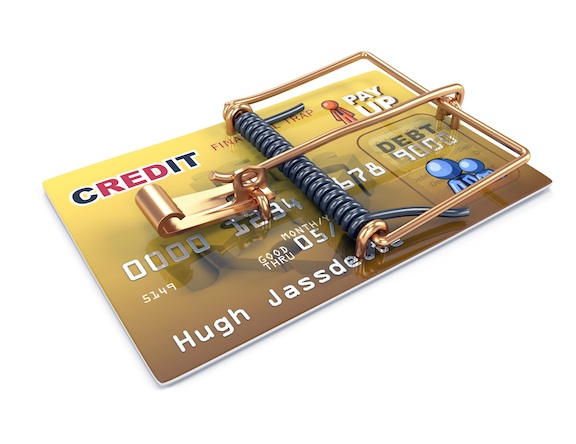
Question: We have been trapped in the “miles thing” with our credit card. And it just got too easy to whip it out for everything. Pretty soon, more money was going out than was coming in. Now we need a car. Can you help?
Answer: You’ve got two issues to deal with. The first is the credit card debt and the second is transportation.
Stop using your credit card! If you need to, cut it up! Start cutting back on every expense possible, from groceries to entertainment. Take the excess you generate and pay down that credit card debt. It’s also time to start liquidating items around the house. What can you sell to generate some cash? Many times folks will have sporting equipment, musical instruments, recreational items such as quads, canoes, campers, etc. Nothing should be held tightly when there is a serious need. Even furniture pieces can be sold. We love Craig’s List, Offer Up and eBay for selling items.
Can your current vehicle be fixed? You may not like it, but often the car you have is your least expensive option. Ask friends for reliable mechanic references. Call around, get quotes. Do you have a friend who can help you make the repairs? If you can keep it running, you’ll buy time to save for a replacement.
If your car has died, could you check into public transportation or carpooling? We know this is not for everyone, but not knowing your exact situation, and having very little information, these questions have to be asked.
Money Saving Tip: Quote your auto insurance Before You Buy
Get an insurance quote before you buy a new car. Insurance prices can vary greatly between different makes and models.
Insurance rates change based on losses in each zip code. Checking with several different insurance companies can net you some great savings.
We like using the website Gabi – it takes a few minutes to enter your info and they’ll give you quotes from multiple insurance companies. It’s super easy and saves you time and money.
Saving with Buying Used Cars
“Over a lifetime of car-buying, the decision to buy a good used car instead of a new one can save you $128,655. This comparison is based on buying the same model car, but two to three years old, and using cash you have saved for the purchase.” Excerpt from Dollars and Sense by Wilson J. Humber. Published by NavPress.

Here is a newer blog with an updated used car buying checklist
Check out our tips about How Long You Should Keep Your Car.
Check out our car insurance page with lots of money-saving tips!
For more ideas regarding cars, please see the 4th chapter of our first book, America’s Cheapest Family Gets You Right on the Money!
If you have a tip related to saving money when buying a car, please leave it in the comments below and we’ll review it for posting on this page.
